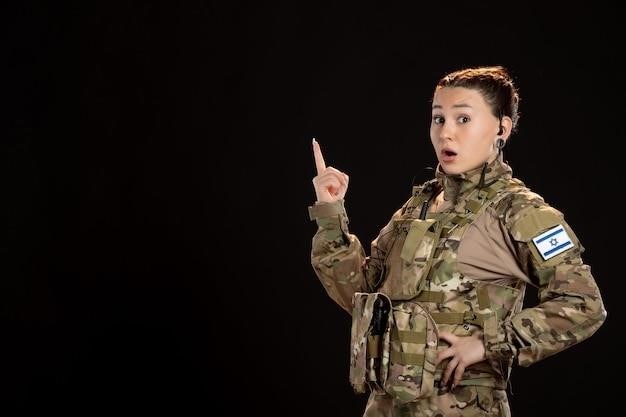New Cadet Guide⁚ A Comprehensive Overview
This guide provides essential information for new cadets, covering program expectations, uniform regulations, and initial training. It also details valuable online resources and support networks to aid in your journey. Explore available training opportunities and leadership development paths to maximize your experience.
Understanding the Cadet Program
The Civil Air Patrol (CAP) Cadet Program is a dynamic youth leadership program, offering a structured environment for personal growth and development. Cadets engage in aerospace education, leadership training, physical fitness, and community service. The program emphasizes character development, teamwork, and a commitment to excellence. Participants gain valuable skills applicable to various aspects of life, fostering self-discipline, responsibility, and a strong sense of civic duty. Through participation, cadets contribute meaningfully to their communities and cultivate valuable life skills.
Initial Expectations and Responsibilities
New cadets are expected to attend squadron meetings regularly and actively participate in training activities. Prompt and respectful communication with squadron leaders is crucial. Adherence to the CAP uniform regulations is mandatory, reflecting professionalism and pride. Maintaining a positive attitude and contributing to a positive team environment is key. Timely completion of assigned tasks and demonstrating a willingness to learn are essential. Early engagement with the provided resources, such as the New Cadet Guide and online materials, will significantly aid your success. Remember, consistent effort and dedication are fundamental to a rewarding cadet experience.
Uniform Regulations and Attire
Maintaining a neat and professional appearance is paramount. Specific uniform requirements will be detailed by your squadron; however, generally, a clean and well-maintained uniform is expected at all times. Ensure your uniform fits correctly and is free from damage. Proper insignia placement is crucial and should be meticulously checked. Shoes should be polished, and personal grooming standards should reflect the high standards of the CAP. Business casual attire (collared shirt and slacks) might be acceptable for certain meetings, but always confirm with your squadron. Detailed uniform guides and resources are readily available online and through your squadron leadership. Remember, your uniform reflects your commitment to the program.
Essential Resources for New Cadets
This section highlights key resources to aid new cadets. Explore the official New Cadet Guide booklet, online resources, and helpful websites for support and guidance throughout your CAP journey.
The New Cadet Guide Booklet⁚ Your Primary Resource
The New Cadet Guide booklet serves as your foundational resource, offering a comprehensive overview of the Civil Air Patrol Cadet Program. It details program expectations, uniform regulations, and initial training requirements. This booklet provides essential information on navigating the program’s structure, understanding your responsibilities, and accessing available support. Consider it your go-to reference for answering initial questions and understanding the program’s framework. Familiarize yourself with its contents to ensure a smooth transition into the cadet program and lay a strong foundation for success. The booklet is designed to be a practical tool, offering guidance and clarity on various aspects of your cadet experience. Regularly referring to this guide will help you navigate your journey effectively.
Online Resources and E-Services
The Civil Air Patrol utilizes a robust online platform, eServices, to manage cadet information, track progress, and access essential resources. This online portal allows you to create an account, complete the mandatory Cadet Welcome Course, and access important documents. E-services streamlines communication and provides a centralized hub for all things related to your cadet journey. Utilize the online resources to stay informed about upcoming events, training opportunities, and program updates. Familiarize yourself with the navigation of the site to quickly locate information pertinent to your needs. The system offers a user-friendly interface designed to help you manage your cadet experience efficiently and effectively. Take advantage of these online tools to maximize your participation and engagement in the program.
Helpful Websites and Support Networks
Beyond the official CAP website, numerous online resources offer valuable support and information for new cadets. Explore dedicated forums and online communities where cadets share experiences, tips, and advice. These networks provide a supportive environment for asking questions and connecting with peers. Websites dedicated to aerospace education and leadership development can supplement your CAP training. Remember to always verify the credibility of any external websites before using them as a primary source of information. Utilize these supplemental resources to broaden your understanding of aerospace concepts and enhance your leadership skills. Seeking out additional online support can greatly enrich your overall CAP experience, offering alternative perspectives and valuable learning opportunities.

Training and Development
This section details the cadet program’s training structure, encompassing introductory courses, rank advancement, and opportunities for specialized training and encampments.
The Cadet Welcome Course⁚ Getting Started
Initial Rank Achievement and Promotions
Your initial rank in the Civil Air Patrol Cadet Program is Cadet Airman. Advancement through the ranks is achieved through a combination of completing training courses, demonstrating leadership qualities, and actively participating in squadron activities. The Cadet Program uses a structured rank system mirroring the US Air Force, offering a clear path for progression. Each rank requires the completion of specific requirements, which are outlined in the New Cadet Guide and available through eServices. These requirements often include completing online courses, participating in physical fitness activities, and demonstrating proficiency in various skills. Regular attendance at squadron meetings and active engagement in training exercises are crucial for success. The speed of promotion depends on individual effort and dedication. Further advancement opens doors to leadership roles and increased responsibilities within the squadron and potentially at higher levels within the organization. This system provides a rewarding framework for personal growth and development.
Advanced Training Opportunities and Encampments
Beyond the initial training, the Civil Air Patrol Cadet Program offers a range of advanced training opportunities designed to enhance your skills and leadership capabilities. These opportunities often include specialized courses in areas such as aerospace education, emergency services, and leadership development. Many squadrons offer additional training sessions focusing on specific areas of interest, allowing cadets to further develop their expertise. Encampments are a significant component of advanced training. These immersive experiences provide cadets with the opportunity to participate in challenging and rewarding activities, including leadership exercises, flight training, and community service projects. Encampments are typically week-long events held at various locations across the country. They offer an excellent chance to network with cadets from different squadrons, build camaraderie, and gain valuable practical experience. Participation in these advanced training opportunities and encampments significantly enhances a cadet’s overall experience and prepares them for future leadership roles within the organization.

Cadet Life and Activities
Discover engaging squadron meetings, impactful community service, and exciting leadership development opportunities. Embrace the camaraderie and build lasting friendships while contributing to your community.
Squadron Meetings and Participation
Regular attendance at squadron meetings is crucial for new cadets. These meetings provide vital information, training, and opportunities for interaction with fellow cadets and senior members. You’ll learn about upcoming events, training exercises, and community service projects. Active participation in discussions and activities is encouraged; it helps build confidence and teamwork skills. Don’t hesitate to ask questions – senior members are there to guide and support you. If you have a prior commitment, inform your squadron leadership in advance. Remember, consistent involvement enhances your overall cadet experience and contributes to your progress within the program. The provided online resources and the New Cadet Guide can help you stay informed and prepare for each meeting. Your active participation strengthens the squadron and contributes to a positive and productive environment for everyone.
Community Service and Outreach Programs
Civil Air Patrol cadets actively participate in various community service and outreach programs, contributing valuable time and skills to local communities. These initiatives foster a sense of civic responsibility and provide opportunities for leadership development. Activities might include disaster relief efforts, search and rescue operations, aerospace education workshops for younger students, and environmental cleanup projects. Participating in these programs not only benefits the community but also enhances cadets’ teamwork, communication, and problem-solving skills. Such involvement often builds confidence, strengthens leadership qualities, and provides a sense of accomplishment. It also allows cadets to connect with their community on a deeper level and build relationships with local organizations. The experiences gained contribute significantly to personal growth and a stronger sense of purpose within the CAP program.
Leadership Development and Opportunities
The Civil Air Patrol Cadet Program emphasizes leadership development through various opportunities. Cadets progressively assume greater responsibility within their squadron, learning to lead teams and manage projects. Formal leadership training courses, coupled with practical experience in squadron activities and community service projects, build essential skills. Opportunities for advancement within the cadet ranks provide tangible goals and incentives to hone leadership capabilities. Cadets learn to communicate effectively, delegate tasks, make decisions under pressure, and inspire others to achieve common objectives. The program’s structure encourages mentorship, allowing experienced cadets to guide newer members, fostering a supportive environment for growth. These experiences equip cadets with valuable leadership skills applicable in all aspects of their lives, preparing them for future success in higher education, careers, and community involvement.